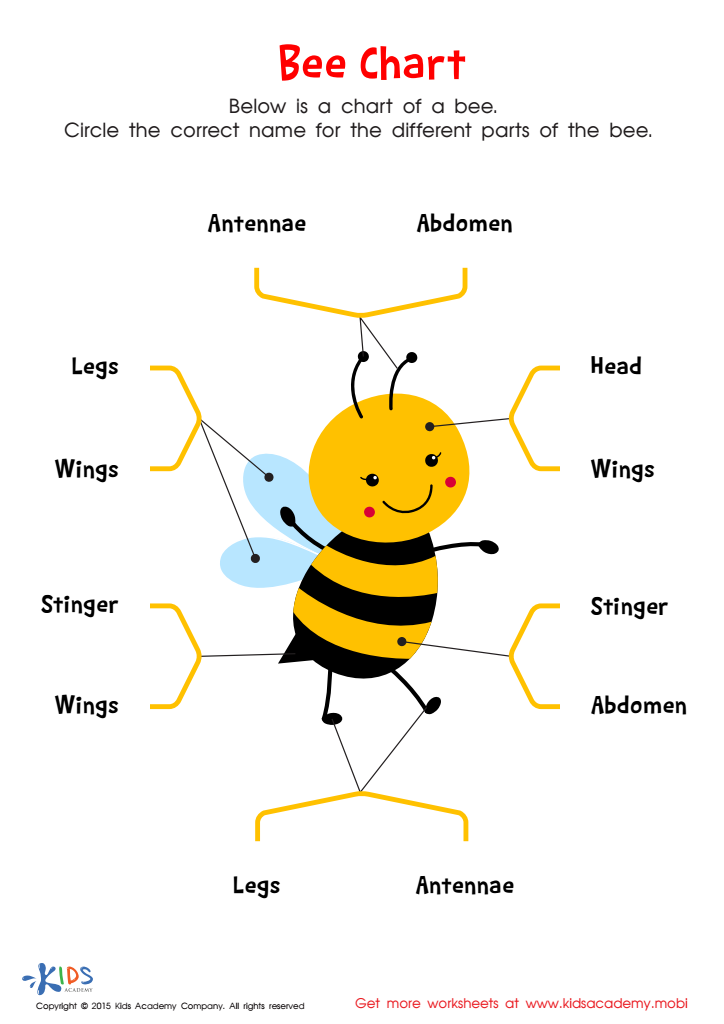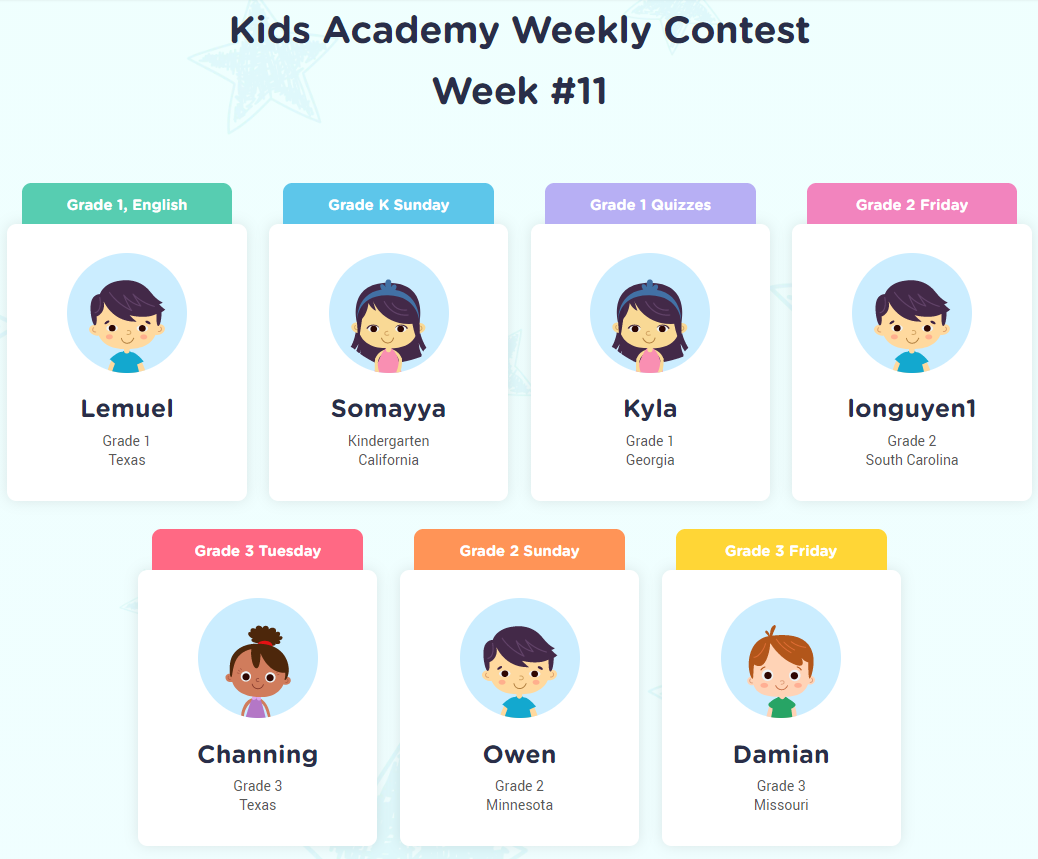Identification skills Normal Worksheets for 6-Year-Olds
6 filtered results
-
From - To
Enhance your 6-year-old's identification skills with our engaging Normal Worksheets! Designed to bolster their learning experience, these worksheets cover a variety of elements, including shapes, colors, letters, numbers, and everyday objects. Each activity promotes critical thinking and helps children recognize and differentiate between items, fostering cognitive development. Our easy-to-follow worksheets are perfect for classroom use or at-home learning, making education fun and interactive. With bright illustrations and user-friendly layouts, kids will love honing their identification skills while exploring new concepts. Download and print our worksheets to support your child's growth and observe their confidence flourish as they master essential learning skills!
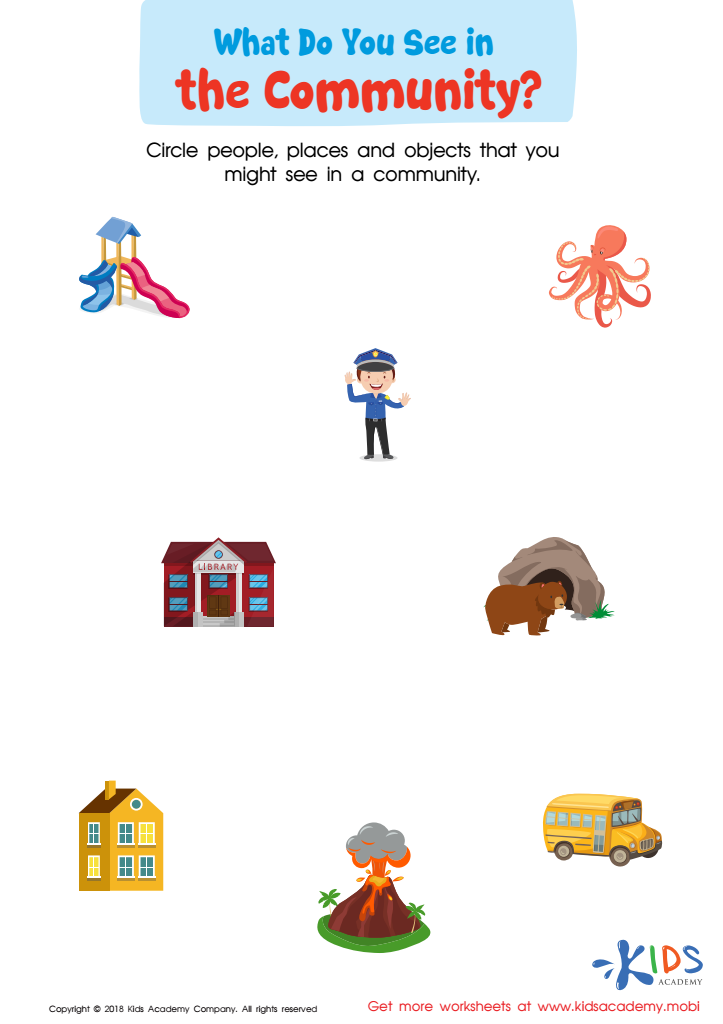

What Do You See in the Community Worksheet
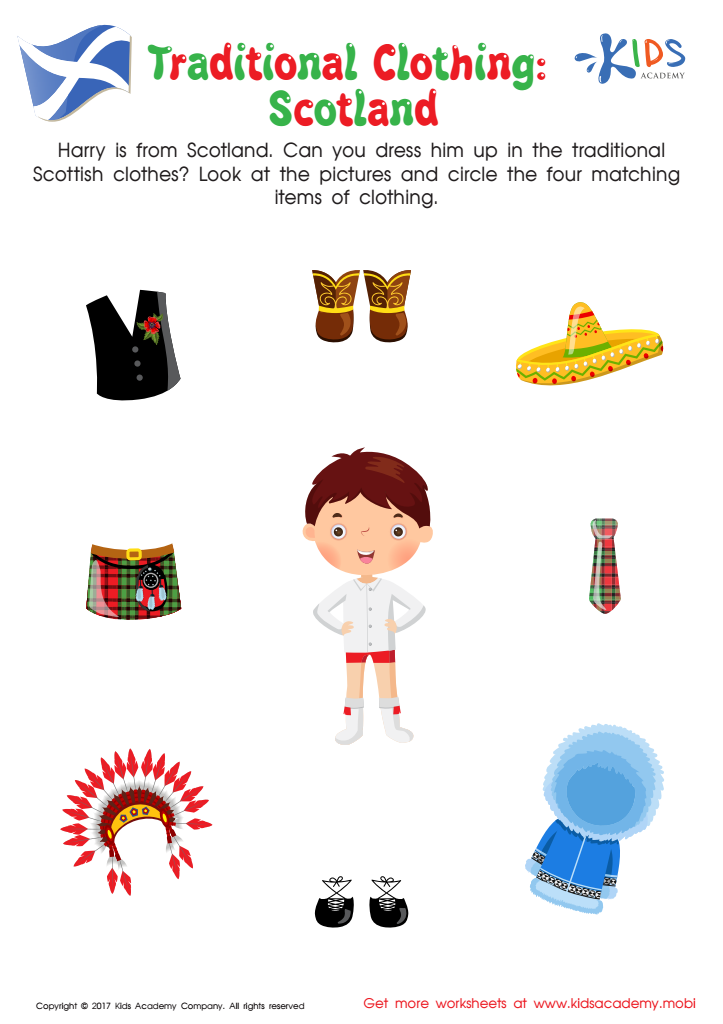

Traditional Clothing in Scotland Worksheet
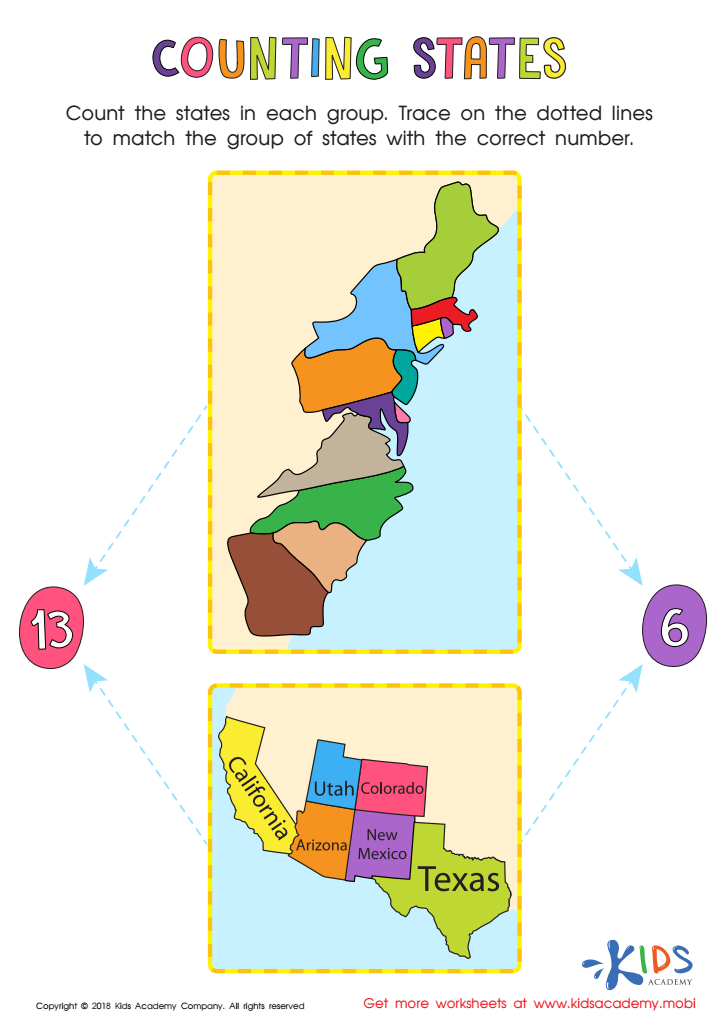

Counting States Worksheet
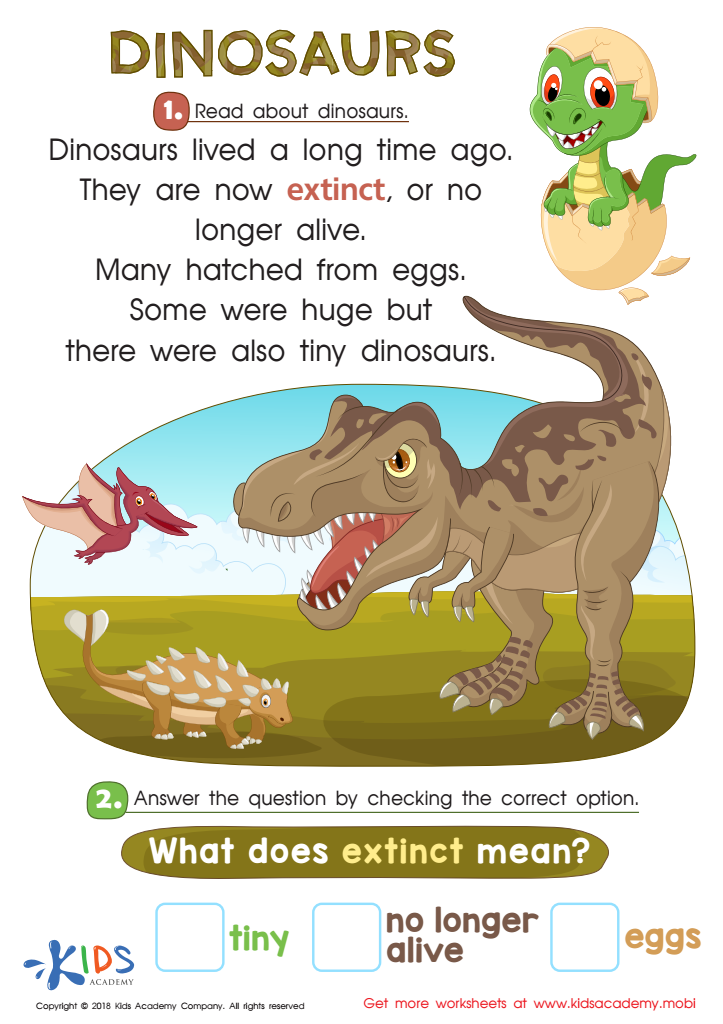

Dinosaurs Worksheet
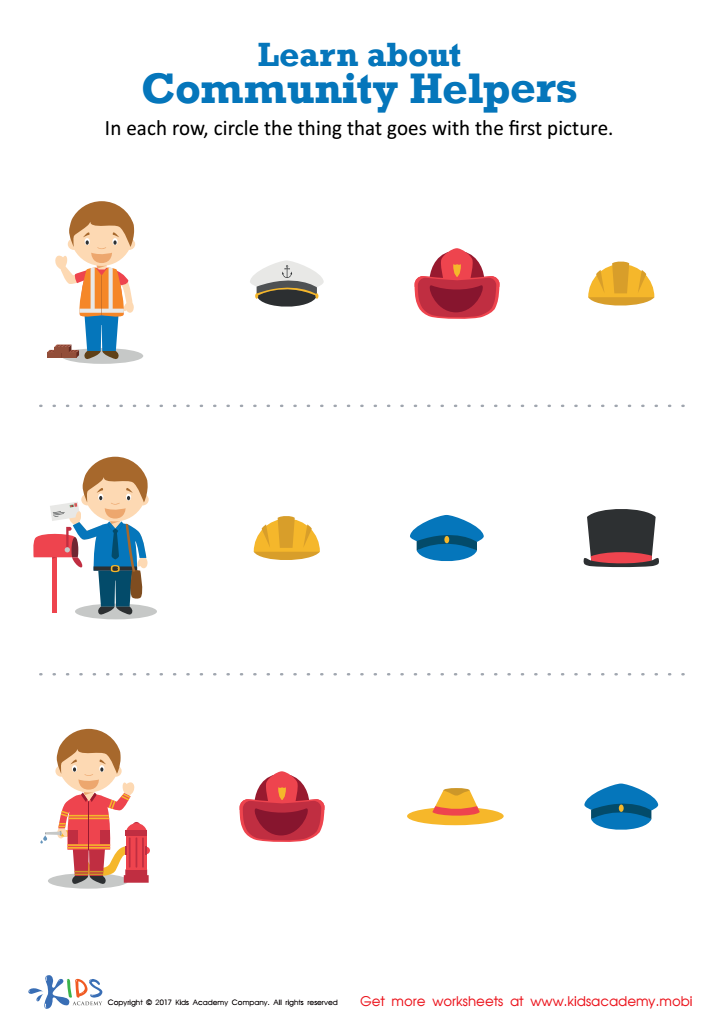

Learn about Community Helpers Printable
Identification skills, or the ability of children to recognize and name objects, people, and concepts, are crucial for 6-year-olds as they lay the groundwork for effective communication and learning. Parents and teachers should care about these skills because they are fundamental in a child’s cognitive development and play a significant role in their academic success.
At this age, children transition from early childhood learning into more structured education, where the ability to identify letters, numbers, shapes, and even emotions becomes essential. Mastering identification skills helps them engage in classroom activities, boosts their confidence, and enhances their ability to follow instructions.
Moreover, strong identification skills are linked to critical thinking and problem-solving abilities. When children can accurately recognize their surroundings and articulate their thoughts, they are better equipped to ask questions, participate in discussions, and express their needs.
Additionally, these skills contribute to social interaction and emotional intelligence. Recognizing facial expressions and differentiating between emotions allows kids to navigate social situations more effectively, fostering relationships with peers and caregivers.
Supporting the development of identification skills in 6-year-olds ensures they are prepared for the challenges of formal education and equips them with essential life skills.
 Assign to My Students
Assign to My Students
